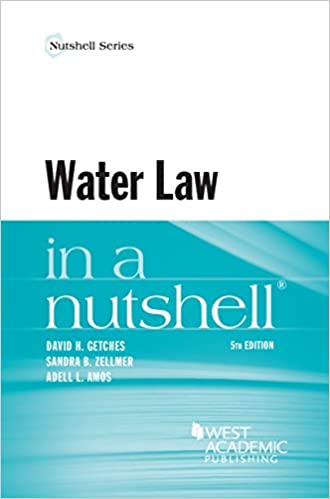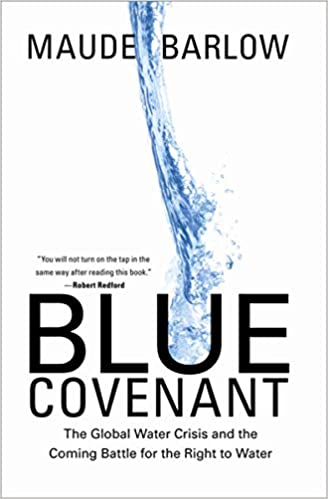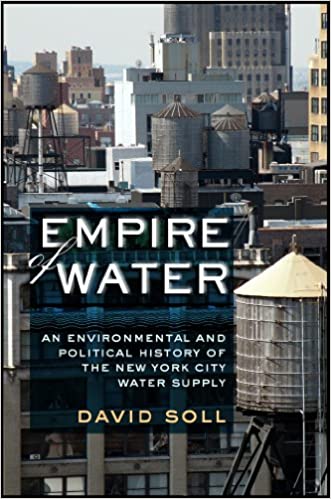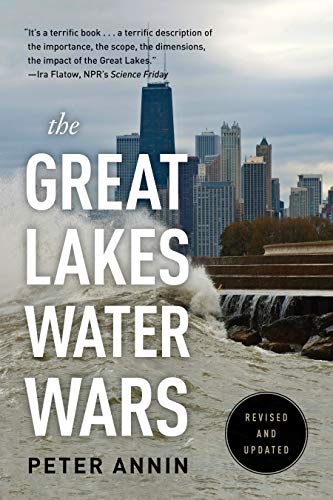|
January 16, 2012
New York's Proposed Water Withdrawal Regulations:
Unequal Treatment for the Great Lakes Basin
My initial review of the proposed water withdrawal regulations published by the New York State Department of Environmental Conservation (DEC) in the New York State Register on November 23, 2011, discloses six preliminary areas of concern:
- The proposed regulations are being issued without a cumulative impact analysis of water usage in the state, including water usage for hydrofracking
- The proposed regulations are being issued without the revised permit language being available for review.
- The proposed withdrawal regulations do not address the consumptive use of water for gas drilling and will not cover most withdrawals for this purpose, leaving the Great Lakes Basin less protected than the Delaware and Susquehanna River Basins
- A staggered schedule of implementation is proposed, with the largest permits being issued first, thereby prioritizing the state's largest water users
- No public hearings are required before permits are issued, leaving residents of the Great Lakes Basin with fewer rights than residents of the Delaware and Susquehanna River Basins
- No water usage fees are imposed for withdrawals in the Great Lakes Basin although fees are imposed by the DRBC and the SRBC for withdrawals in the Delaware and Susquehanna River Basins
I urge the DEC to withdraw the proposed regulations and offer new regulations for comment that address these concerns.
As described in a previous post, the proposed regulations are to implement the water withdrawal legislation passed unanimously by both houses of the legislature earlier this year and signed into law by Governor Cuomo on August. 15, 2011. The proposed regulations, prepared as amendments to 6 NYCRR Parts 601 and 621, are posted on the DEC website at http://www.dec.ny.gov/regulations/78258.html. No public hearings on the proposed regulations have been scheduled. On Dec. 2, 2011, the DEC announced public information sessions in New Paltz on December 6, 2011, in Henrietta on December 13, 2011, and in Albany on December 12, 2011. Written public comments on the proposed regulations are being accepted through next Sunday, January 22, 2012.
1. There Needs to Be a Cumulative Impact Analysis of Water Usage in the State, including Water Usage for Hydrofracking
A comprehensive revision and expansion of New York's water withdrawal regulations would appear to require a cumulative impact analysis under the New York State Environmental Quality Review Act (SEQRA). A cumulative impact analysis is being urged as part of the DEC's environmental review of its amended gas drilling regulations and permit requirements.
Both the Delaware River Basin Commission (DRBC) and the Susquehanna River Basin Commission (SRBC) are being challenged for their failures to conduct cumulative impact analyses of water usage for gas drilling and other uses in the Delaware and Susquehanna River Basins, see NY AG Sues for Full Environmental Review of Gas Drilling in Delaware River Basin, Nonprofits Challenge DRBC Gas Drilling Regulations, and SRBC Adopts Rulemaking on Gas Drilling, Ignores Concerns. Similarly, the DEC needs to prepare a cumulative impact analysis of New York's water resources before amendments to the state's water withdrawal regulations are proposed.
The August 2010 Final Report of the New York Great Lakes Basin Advisory Council, Conserving and Protecting Our Water Today for Use Tomorrow, states, “Prior to managing or regulating new and expanded uses as required by the [Great Lakes-St. Lawrence River Basin] Compact, New York State must establish a baseline of current existing withdrawals, diversions and consumptive uses.”
Furthermore, why the rush to close the comment period on the proposed water withdrawal regulations before New York State's environmental review of hydrofracking and horizontal drilling is completed? There are many overlapping issues between the regulation of gas drilling and the regulation of water withdrawals since water withdrawals for gas drilling will be a major new water use in the state if hydrofracking and horizontal drilling are permitted. For this reason, the DEC should wait to close the comment period on the water withdrawal regulations until after the SGEIS on hydrofracking and horizontal drilling is completed.
2. Updated Permit Language Is Not Available for Review
In the ongoing environmental review of hydrofracking and horizontal drilling, the DEC has made the proposed new permit conditions available as part of the review process. Updated water withdrawal permits reflecting the proposed new regulatory requirements have not been made available. When I called the DEC to request an opportunity to review the new permit language, I was told that updated permit language has not been finalized. In order to adequately evaluate the proposed water withdrawal regulations, it is necessary to review the proposed permit revisions.
3. The Consumptive Use of Water for Gas Drilling Must be Subject to Review and Approval
Unlike the rules of the Susquehanna River Basin Commission (SRBC) or the proposed rules of the Delaware River Basin Commission (DRBC), the DEC's proposed water withdrawal regulations contain no special requirements for water withdrawals for the consumptive use of gas drilling. The proposed regulations thus fall short of of the oft-stated goal of putting in place regulations in the Great Lakes Basin that will give the state's water resources in the Great Lakes Basin the same protections that apply in the Susquehanna and Delaware Basins.
The Delaware River Basin Compact and the Susquehanna River Basin Compact, codified in New York at ECL Section 21-0701 et seq. and Section 21-1301 et seq., respectively, delegate authority to the Delaware and Susquehanna River Basin Commissions to regulate withdrawals from, diversions into or out of, and consumptive uses of, water in each basin. No similar provision is contained in the Great Lakes-St. Lawrence River Basin Water Resources
Compact, codified in New York at ECL Section 21-1001 et seq., leaving withdrawals in the Great Lakes Basin subject to the regulations of New York.
Furthermore, it would appear that, because the DEC's proposed withdrawal permitting requirements are not tied to the consumptive use to which the withdrawals will be put, except in one limited case, the regulations fail to implement the requirements of the Great Lakes-St. Lawrence River Basin Water Resources
Compact (GLSLRBC).
Article 1, Section 4.3.1 of the GLSLRBC provides that "Each Party, within its jurisdiction, shall manage and regulate New
or Increased Withdrawals, Consumptive Uses and Diversions, including
Exceptions, in accordance with this Compact." ECL § 21-1001.
In only one instance under the proposed regulations does the use to which a withdrawal will be put trigger a permitting requirement. Section 601.6(f) requires a permit "for a public water supply system with a capacity equal to or greater than the threshold volume, to enter into a contract or other agreement for the bulk sale of water for a commercial, industrial, or oil or gas well development purpose outside of the public water supply system's approved water service area." Certain types of uses are exempted from the permitting requirements, including agricultural uses and power production. See section 601.9, Permit Exemptions.
Because the proposed permitting requirements apply to the withdrawers of water and not to the end uses of the water, and because many of the water withdrawals made for gas development purposes are made by independent trucking companies withdrawing less than the permitting threshold of 100,000 gpd, the DEC's proposed permitting requirements will not apply to many of the water withdrawals used for gas drilling purposes.
Both the SRBC rules and the proposed DRBC rules require all consumptive uses of water for the purposes of gas development to be reviewed and approved. As summarized by Thomas W. Beauduy, Deputy Executive Director and Counsel of the SRBC in his testimony to the Subcommittee on Water and Power of the US
Senate Committee on Energy and Natural Resources on October 20, 2011, the SRBC's regulatory program generally requires review and approval of any project
proposing to withdraw 100,000 gallons per day (gpd) or more, based on a 30-day
average, from groundwater or surface waters, similarly to the proposed New York requirements. However, the SRBC also requires review and approval of any project requiring the consumptive use of 20,000 gpd or
more, also based on a 30-day average. By definition, diversions of water out of the basin
are considered to be a consumptive use and are subject to a similar 20,000 gpd threshold.
Diversions into the basin, regardless of quantity, are likewise subject to review and
approval. In the case of water used for gas drilling, the SRBC requires that any consumptive use of water for gas drilling in the Susquehanna River Basin be reviewed and approved. The SRBC defines consumptive use as the loss of water “due to transpiration by vegetation, incorporation into products during their manufacture, evaporation, injection of water or wastewater into a subsurface formation from which it would not reasonably be available for future use in the basin, or any other process by which the water is not returned to the waters of the basin.” 18 CFR §806.3.
In his testimony, Mr. Beauduy identified the reasons why the SRBC has implemented special requirements for gas development uses:
"As exploratory well development of the Marcellus Shale formation got underway in the second half of 2008, the Commission experienced a dramatic increase in the number of applications seeking approval for water withdrawals and consumptive water use. It also
saw the potential for this activity to create adverse, cumulative adverse or interstate
effects to the water resources of the basin, regardless of whether individual projects met or fell below its regulatory thresholds.
"Why the concern? Save for the bottled water industry, which tends to focus on pristine watersheds for high quality water, the vast majority of projects regulated by the Commission have historically located themselves alongside the mainstem river, or major tributaries, or at least down in the valleys along streams with appreciable flow characteristics. Furthermore, the typical project could be analyzed for impact based on withdrawals from specific locations to feed adjacent operations with attendant calculations of return flow and consumptive loss.
"But the natural gas development industry is different, fundamentally different. It takes water from multiple de-centralized locations, on an inconsistent basis, and uses it at any one of dozens of ever-changing locations, based on its operational needs. Perhaps most
significantly, and what sets it apart, is the fact that it engages in water-demanding activity in remote, often environmentally sensitive headwater areas.
"Quantities of water that one could otherwise consider inconsequential on a major tributary can represent an important component of the flow regime in headwater areas. When you overlay the extent of headwater streams in our basin with the extent of the Marcellus shale formation, as depicted graphically in Attachment 2, you can see that alignment.
"As a result of that alignment, coupled with the operational nature of the industry, the Commission elected to modify its regulatory approach for this industry. . . . Those modifications include the following:
- "The regulatory threshold for initiating Commission review and approval authority commences at gallon one, rather than the traditional regulatory thresholds noted above. . . . [emphasis added.]"
See also, Ecosystem Flow Recommendations for the Susquehanna River Basin, The Nature Conservancy, 2010.
The proposed regulations need to be withdrawn and requirements added that permits be obtained for all water used in the state for the consumptive use of gas well development.
4. All Water Users Need to Be Eligible for Permitting at the Same Time
The permitting requirements in the proposed regulations are being implemented on a staggered schedule, with permits for the largest water withdrawals being issued first. Section 601.7(2) provides that:
"A complete application for an initial permit shall be submitted by and in accordance with the following schedule: February 15, 2013 for water withdrawal systems that withdraw or are designed to withdraw a volume of 100 million gallons per day (mgd) or more; February 15, 2014 for water withdrawal systems that withdraw or are designed to withdraw a volume equal to or greater than 10 mgd but less than 100 mgd; February 15, 2015 for water withdrawal systems that withdraw or are designed to withdraw a volume equal to or greater than 2 mgd but less than 10 mgd; February 15, 2016 for water withdrawal systems that withdraw or are designed to withdraw a volume equal to or greater than 0.5 mgd but less than 2 mgd; February 15, 2017 for water withdrawal systems that withdraw or are designed to withdraw a volume equal to or greater than 0.1 but less than 0.5 mgd."
How can the DEC weigh competing usage requirements if it does not consider all initial permit applications at the same time? The proposed schedule is manifestly unfair in that it gives priority to the state's largest water users in descending order. Implementation of the proposed regulations needs to be postponed until the DEC is sufficiently staffed so that all applicants can be treated equally.
Also, if the first initial permits are not scheduled to be issued until 2013, why the rush to finalize the regulations now before the SGEIS on hydrofracking and horizontal drilling is completed?
5. Public Hearings on Water Use Applications Must Be Required
No public hearings are provided under the proposed regulations before a permit may be issued. The failure to provide for public hearings leaves residents of the Great Lakes Basin without the opportunity to present their concerns regarding proposed water withdrawal applications in a public forum.
Residents of the Delaware and Susquehanna River Basins have the right to publicly present their concerns pursuant to DRBC and SRBC policies and procedures, and have made use of that right to protest recent applications for water withdrawals for gas drilling in both River Basins. Hundreds spoke the DRBC hearing in Deposit, NY on XTO's water withdrawal application from Oquaga Creek in Broome County on June 1, 2011, and many spoke at the SRBC's meeting in Wilkes-Barre, PA on December 15, 2011, at which several dozen water withdrawal applications were before the SRBC. See SRBC Adopts Rulemaking on Gas Drilling, Ignores Concerns.
The regulations need to give residents of the Great Lakes Basin the same public hearing rights as residents of the Delaware and Susquehanna River Basins
6. Water Usage Fees Are Needed
Under the terms of the Delaware River Basin Compact and the Susquehanna River Basin Compact, water withdrawals in the Delaware and Susquehanna River Basins are subject to DRBC and SRBC approval processes and not the proposed DEC regulations. Both the DRBC and the SRBC charge application fees and fees for permitted water usage. As noted on page 16 of the August 2010 Report of the New York Great Lakes Basin Advisory Council cited above ,
"e) ECL Article 21 [the Delaware River Basin Compact and the Susquehanna River Basin Compact] delegates authority to the Delaware and
Susquehanna River Basin Commissions to regulate withdrawals
from, diversions into or out of, and consumptive uses of, water in
each basin. All withdrawals, diversions and consumptive uses are
reported to the Commissions on an annual basis. Consumptive use
is defined as water that is not returned to the basin due to
evaporation, incorporation into products, or other processes. Both
Commissions charge significant fees for both application review and
annual water usage."
The proposed regulations do not provide for fees to be charged for water usage or for application fees. Since these regulations apply principally to withdrawals in the Great Lakes Basin, why the disparate fees for waters withdrawn from the Great Lakes Basin?
Although fees were not required by the implementing legislation, Chapters 400-402, Laws of 2011, the DEC has authority to impose fees, both under the legislation which delegates to DEC the authority to promulgate regulations to implement a permitting program for water withdrawals. As amended, ECL § 15-1501.4 provides the Department "shall promulgate regulations to implement a permitting program for water withdrawals equal to or greater than a specified threshold volume consistent with the requirements of this section... Such regulations may establish...any other conditions, limitations and restrictions... to ensure the proper management of the waters of the state."
The DEC also has general authority to establish reasonable fees to carry out its duties. At least one New York court held that administrative agencies are permitted to charge fees that are not explicitly authorized by statute if the fees are reasonably necessary for carrying out the regulatory scheme. See Walton v. N.Y. Dep’t of Corr. Serv., 921 N.E.2d 145, 151 (N.Y. 2009) (reasoning that fees are legitimate when a benefit, such as a license, is received and stating that, "municipalities and administrative agencies engaged in regulatory activity can assess fees that need not be legislatively authorized as long as the fees charged are reasonably necessary to the accomplishment of the regulatory program”).
The proposed regulations need to provide permit application and water usage fees that will apply to waters withdrawn from the Great Lakes Basin which are comparable to the fees imposed by the SRBC and the DRBC.
Affirmation of Riparian Rights
On the positive side, the proposed regulations contain good language affirming riparian rights, thus alleviating a concern that some of us had with last year's legislation. Section 601.12(o) of the proposed regulations provides, "The issuance of a water withdrawal permit does not convey any property rights in either real or personal property, or any exclusive privileges, nor does it authorize any injury to private property or any invasion of personal rights, nor any infringement of federal, state or local laws or regulations; nor does it obviate the necessity of obtaining the assent of any other jurisdiction as required by law for the water withdrawal authorized."
Withdraw the Proposed Regulations
For the reasons outlined above, I urge the DEC to withdraw the proposed regulations and offer new regulations for comment that address these concerns.
|
|
|
About NY Water Law
New York Water
Law covers legal developments relating to water usage in New York
and elsewhere. The
author, Rachel Treichler, practices law in the Finger Lakes region. .
Search NY Water Law
Enter search terms:
Index of Posts
Index
of Posts by Month
Recommended Reading






|
|

